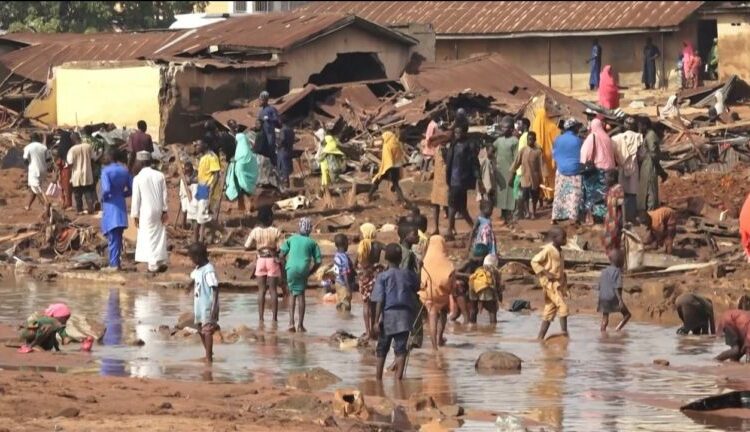Following the Mokwa flood disaster, which recently brought down homes, washed away roads and bridges, and rendered over 5,000 homeless amid a high death toll, the Building Collapse Prevention Guild (BCPG) has called for urgent revalidation of buildings in the locality to ascertain their structural integrity and avert imminent collapses.
BCPG in a statement by the chairman of the Building Collapse Prevention Guild, Engr. Nasir Illo, general secretary, Arc. Ibrahim Shittu, public relations officer, Builder, Sheshi Mohammed Raba of Niger State Chapter made available to journalists at their Lagos State headquarters said their field assessment has revealed extensive devastation, characterised by significant damage to infrastructure and a profound loss of life.
The guild said, “Over 580 buildings – predominantly mud houses – have been destroyed. Tragically, according to the National Emergency Management Agency’s latest data, 161 lives have been lost as a result of the disaster.
“Preliminary investigations suggest a combination of factors contributed to this disaster. According to the Nigerian Meteorological Agency (NiMet), the region experienced unusually intense rainfall.
“Unfortunately, the excessive water was reportedly impounded by a railway track dyke/ embankment, which gave way under pressure, unleashing a high-velocity flood that swept through homes, culverts, and roads, leaving widespread destruction in its path.
“The level of destruction we witnessed in Mokwa is heart-wrenching and demands our immediate attention. The sheer number of homes flattened and lives lost underscores the urgent need for proactive, preventive measures to avoid such catastrophes in the future.’’
They noted that while the rainfall was a natural event, critical infrastructure failure significantly worsened the impact. They added that floodwaters from Mokwa town discharged into the River Niger through the tributary River Dingi at Rabba Village, barring backflow.
“We therefore call on all relevant authorities and stakeholders to act immediately. These include: The Federal and Niger State governments: to provide immediate humanitarian assistance and commence full-scale rehabilitation for affected communities.
“The Nigerian Railway Corporation: to undertake a comprehensive technical review and reinforcement of railway infrastructure, especially dykes and culverts, to ensure resilience against future extreme weather events.
“Urban Planning and Development Authorities: to revisit and strengthen building regulations in flood-prone areas, prioritising durable materials, effective drainage systems, and safer siting.
“Environmental and Hydrological Agencies: to carry out detailed hydrological studies, improve land use planning, and implement robust flood early warning and emergency response systems.”











